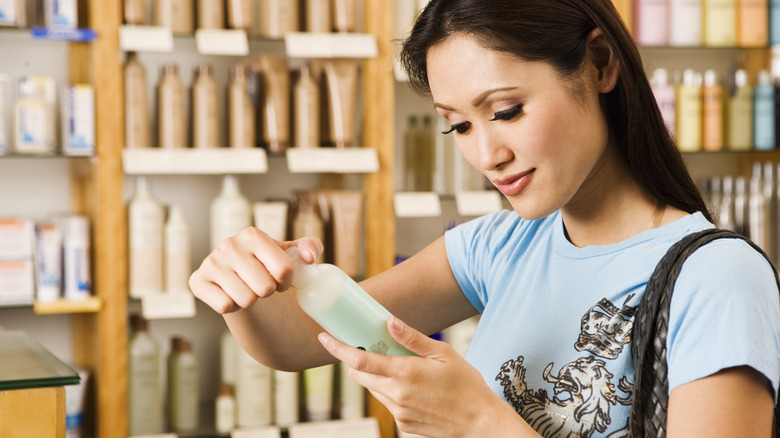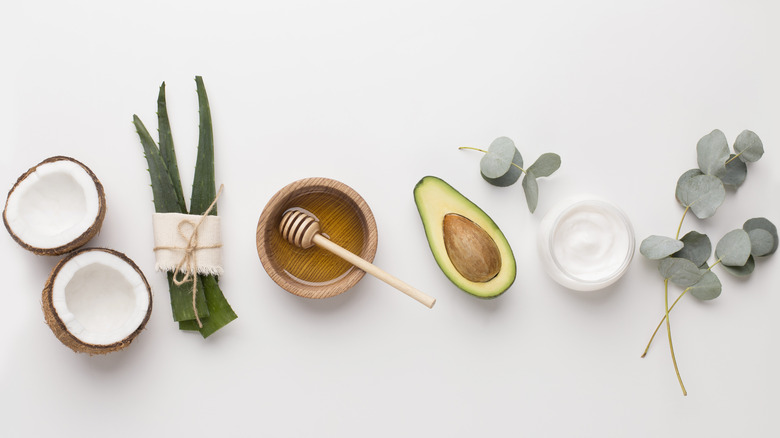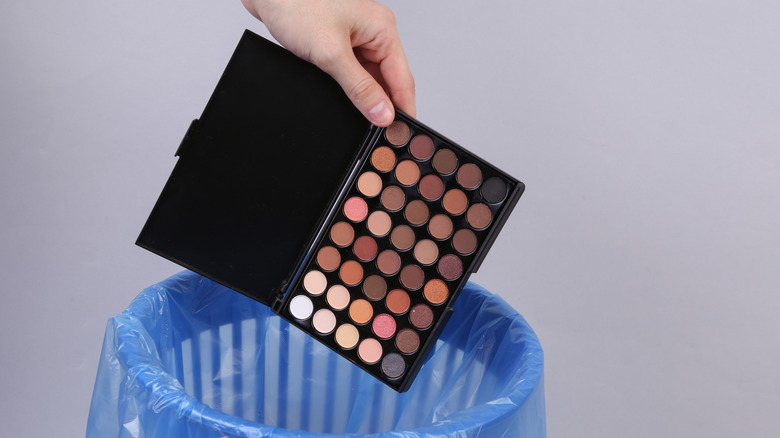Do 'Clean' Beauty Products Go Bad Faster Than Others?
We may receive a commission on purchases made from links.
Many people will hold onto their beauty products long after they should have been tossed out. What they don't realize is that, just like food and medicine, cosmetics also have expiration dates. Don't blame yourself if you were previously unaware or guilty of holding on to some eyeshadow from 2010. The FDA does not obligate items under the "cosmetic" category to include expiration dates on their labels. According to their website, it is legal for makeup products to be sold without any FDA approval.
Most products contain preservatives to ensure that they stay marketable for long periods. Cosmetic chemist Javon Ford assured mindbodygreen that " ... in modern conventions, products are shelf stable for over a year." But you might be especially wary of "clean beauty," associating "clean" with the buzz phrase "preservative-free." While some clean beauty products are made without preservatives, this is not the case for all.
How 'clean' beauty products compare to traditional products
It's common for people to worry that just because their beauty product is labeled " clean," it will go bad quickly. This is likely because the term "clean" is pretty ambiguous. The clean beauty store, Credo Beauty, defines "clean" as products that do not contain any of the thousands of ingredients they've labeled "dirty." This long list includes chemicals that they categorize under "Hormone Disruption, Toxic to Environment, Toxic to Human Body, Allergies/Sensitization, [and] Cancer."
Krupa Koestline, cosmetic chemist and founder of a product-development firm, explained to The Cut that the products meeting these "clean" requirements will create formulas without preservatives such as "BHT, BHA, methylisothiazolinone, Diazolidinyl urea, and parabens." However, not all preservatives are considered toxic. Koestline listed "sodium benzoate, potassium sorbate, sodium levulinate, and sodium anisate" as popular "clean" preservatives. Cosmetic chemist Jim Hammer disclosed to Allure, "Most products are stability-tested to ensure that they will last for two to three years unopened on the shelf." So, it's unlikely that your "clean" beauty products will expire any quicker than your traditional ones.
The products with the shortest life-span
It turns out that "clean" does not necessarily indicate that your product will expire faster. However, "clean" products should not be confused with "natural" products. In his interview with Allure, Hammer added, "Natural oils and butters can oxidize and develop changes in odor and appearance pretty quickly if not formulated with an effective antioxidant." In addition, Vince Spinnato, a chemist specializing in personal care, told Allure, "Most of the naturally-derived, non-synthesized ingredients such as extracts or blends from berries, trees, and flowers" will perish at a higher rate than products without the flashy "natural" label.
Some products by design, whether "natural," "clean," or neither, will go bad faster than the other items in your makeup bag. "Water-based products, including liquids, creams, and lotions, are more prone to spoilage from bacterial growth if the preservative system isn't strong enough or if the product is constantly coming into contact with the user," said Hammer. This is your sign to check on your lotion's expiration date and consider throwing it out. Koestline provided a simple guideline to The Cut, suggesting you toss out most products after six months and your eye makeup after three months.


